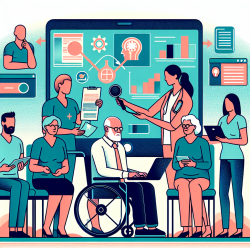Introduction
In the realm of substance use disorder (SUD) treatment, pregnant and parenting women face unique challenges that are often overlooked. A recent study titled Pregnancy- and parenting-related barriers to receiving medication for opioid use disorder: A multi-paneled qualitative study of women in treatment, women who terminated treatment, and the professionals who serve them sheds light on these barriers. This study provides valuable insights for practitioners seeking to improve their skills and create better outcomes for women in need of medication for opioid use disorder (MOUD).
Key Findings
The study identified several systemic and internal barriers that pregnant and parenting women face when seeking MOUD. These barriers are categorized into two main themes: parenting-related and pregnancy-related barriers.
Parenting-Related Barriers
- Insufficient Access to Childcare: Women often struggle to find childcare support, making it difficult to attend treatment appointments.
- Fear of Losing Custody: Many women fear that seeking treatment could result in losing custody of their children.
- Prioritizing Children's Needs: Women often prioritize their children's needs over their own, hindering their ability to seek treatment.
Pregnancy-Related Barriers
- Hesitancy Among Physicians: Some physicians are reluctant to prescribe MOUD to pregnant women.
- Limited Resources in Rural Areas: Women in rural areas face additional challenges due to limited access to resources.
- Complex Healthcare System: Navigating the healthcare system can be overwhelming, especially for pregnant women.
Implications for Practitioners
Practitioners can play a crucial role in addressing these barriers. Here are some recommendations based on the study's findings:
- Improve Childcare Support: Providing childcare support at treatment facilities can help women access the care they need without fearing loss of custody.
- Integrated Care Programs: Creating programs that offer integrated care for prenatal, postpartum, and pediatric appointments alongside MOUD treatment can simplify the healthcare journey for women.
- Education and Training: Educating healthcare providers about the importance of MOUD for pregnant women can reduce hesitancy and improve treatment access.
Encouraging Further Research
While this study provides valuable insights, further research is needed to explore these barriers in more depth and across diverse populations. Practitioners are encouraged to engage in research efforts to continue improving treatment access and outcomes for pregnant and parenting women with opioid use disorder.
To read the original research paper, please follow this link: Pregnancy- and parenting-related barriers to receiving medication for opioid use disorder: A multi-paneled qualitative study of women in treatment, women who terminated treatment, and the professionals who serve them.










